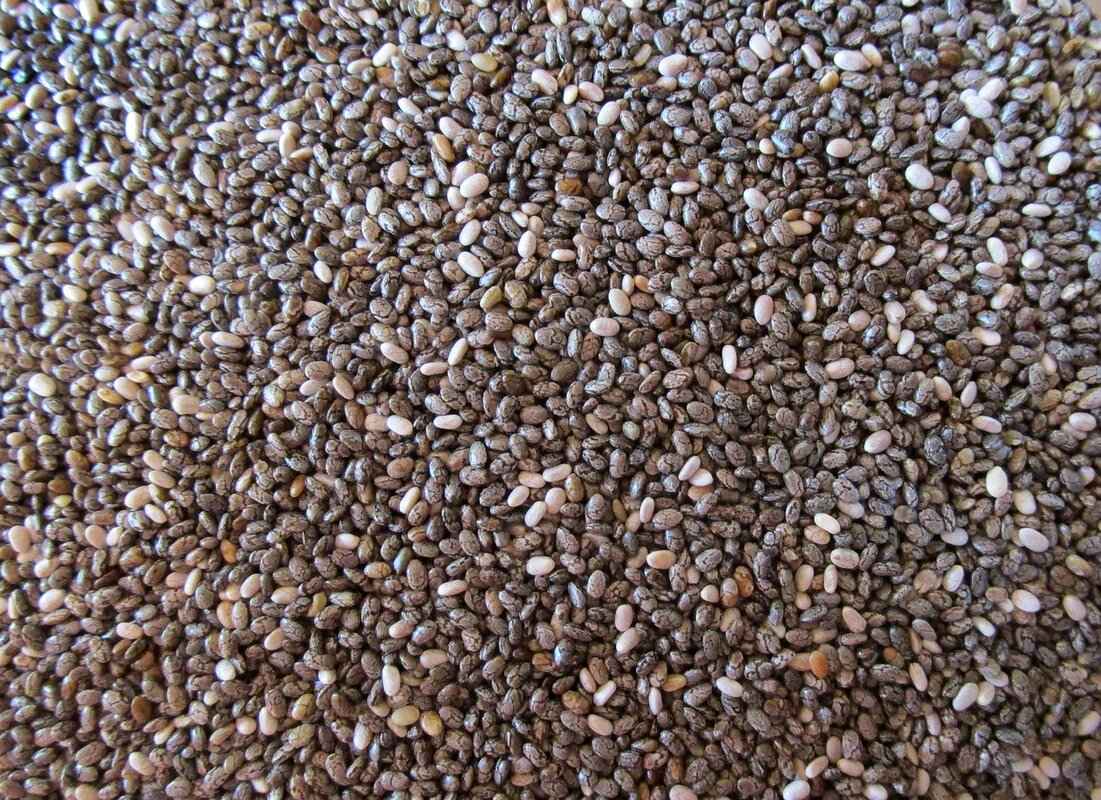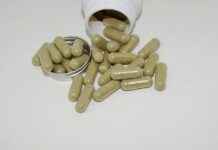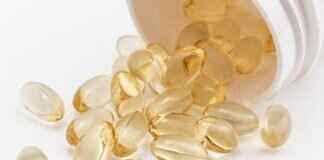Chia seeds have gained immense popularity in the health and wellness community, particularly for their potential role in weight loss. These tiny seeds, derived from the Salvia hispanica plant, are not only versatile but also packed with essential nutrients that can aid in your weight management journey. This article delves into the various ways chia seeds can assist in weight loss, their nutritional profile, and practical methods to incorporate them into your daily diet.
Chia seeds are small, oval-shaped seeds that come in black or white varieties. They are native to Mexico and have been used for centuries by ancient civilizations for their numerous health benefits. These seeds are known for their ability to absorb water, expanding in size and creating a gel-like substance, which can enhance feelings of fullness.
The high fiber content of chia seeds plays a crucial role in weight management. Fiber promotes a sense of fullness, which can help reduce overall calorie consumption. When chia seeds absorb water, they expand in the stomach, leading to increased satiety. This makes it easier to control hunger and minimize snacking throughout the day.
Chia seeds are a powerhouse of nutrients. They are rich in:
- Omega-3 fatty acids – Important for heart health.
- Protein – Essential for muscle repair and growth.
- Vitamins and minerals – Including calcium, magnesium, and phosphorus.
These nutrients not only support overall health but also enhance weight loss efforts by improving metabolic functions.
Incorporating chia seeds into your daily meals is simple and versatile. Here are some popular methods:
- Chia Seed Pudding: Combine chia seeds with milk or a dairy alternative and let them soak overnight. This creates a delicious and creamy pudding.
- Chia Seeds in Smoothies: Add chia seeds to your favorite smoothie for an extra boost of nutrition and a satisfying texture.
- Baking with Chia Seeds: Use chia seeds as an egg substitute in baking recipes by mixing them with water.
While chia seeds are generally safe for most individuals, excessive consumption may lead to digestive issues such as bloating or gas due to their high fiber content. It’s advisable to start with a small amount and gradually increase your intake.
The ideal serving size for chia seeds is about 1-2 tablespoons per day. This amount provides a wealth of nutrients without overwhelming your digestive system.
Since chia seeds can absorb up to 12 times their weight in water, it is crucial to maintain adequate hydration while consuming them. Drinking sufficient fluids can help prevent any potential digestive discomfort and optimize the benefits of chia seeds.
In summary, chia seeds are a nutrient-dense addition to any diet, especially for those looking to manage their weight. By understanding their benefits and incorporating them into your meals, you can harness their full potential for a healthier lifestyle.

What Are Chia Seeds?
Chia seeds, originating from the Salvia hispanica plant native to Mexico, have gained immense popularity in recent years due to their impressive health benefits. These tiny black or white seeds are not only versatile but also packed with essential nutrients, making them a valuable addition to any diet.
Chia seeds are small, nutrient-dense seeds that have been consumed for centuries. They were a staple in the diets of ancient civilizations, including the Aztecs and Mayans. Today, they are recognized for their remarkable health benefits, particularly in the realm of weight management and overall wellness.
One of the reasons chia seeds are classified as a superfood is their nutritional profile. They are rich in:
- Omega-3 fatty acids: Essential for heart health and reducing inflammation.
- Dietary fiber: Aids digestion and promotes feelings of fullness.
- Protein: Supports muscle repair and growth.
- Vitamins and minerals: Including calcium, magnesium, and phosphorus, which are vital for bone health.
Chia seeds are particularly effective in aiding weight loss due to their high fiber content. When consumed, they absorb water and expand in the stomach, creating a sensation of fullness that can help reduce overall calorie intake. This property makes them an excellent choice for those looking to manage their weight without feeling deprived.
Incorporating chia seeds into your diet is simple and can enhance the nutritional value of various meals. Here are some practical ways to enjoy them:
- Chia Seed Pudding: Combine chia seeds with milk or a dairy alternative, let them soak overnight, and enjoy a delicious and creamy breakfast.
- Smoothies: Add a tablespoon of chia seeds to your smoothie for an extra boost of nutrients and a satisfying texture.
- Baking: Use chia seeds as an egg substitute in vegan baking, or sprinkle them on top of breads and muffins for added crunch.
While chia seeds are generally safe for most individuals, consuming them in excess can lead to digestive discomfort, such as bloating or gas. This is primarily due to their high fiber content. It’s important to start with a moderate amount and gradually increase your intake.
The recommended serving size for chia seeds is about 1-2 tablespoons per day. This amount provides a wealth of nutrients without overwhelming the digestive system. Additionally, because chia seeds can absorb a significant amount of water, it is crucial to stay hydrated when consuming them.
Since chia seeds can absorb up to 12 times their weight in water, ensuring proper hydration is essential. Drinking plenty of fluids not only helps prevent digestive discomfort but also maximizes the health benefits of chia seeds.
In summary, chia seeds are a nutritious addition to any diet. Their unique properties make them particularly beneficial for weight management, and with various ways to incorporate them into meals, they can easily become a staple in your daily routine.
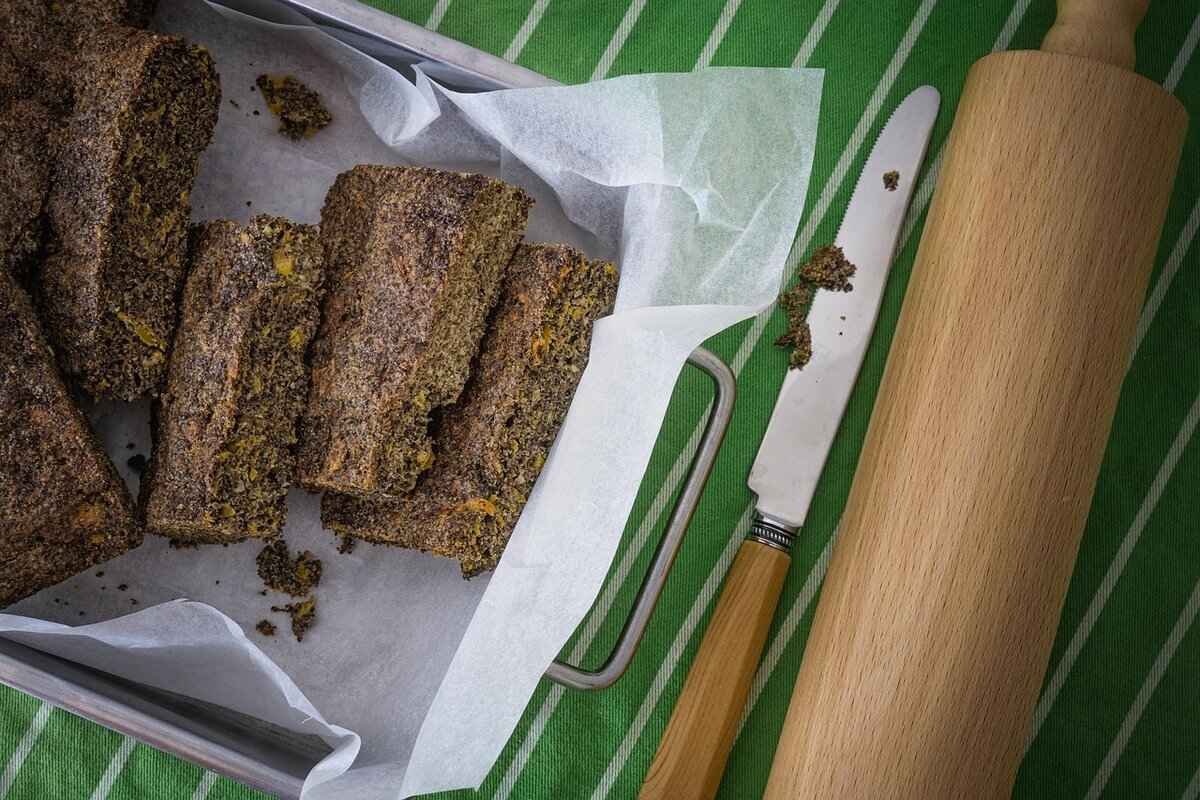
How Do Chia Seeds Aid Weight Loss?
Chia seeds have gained popularity as a superfood, especially among those looking to manage their weight effectively. These tiny seeds, rich in nutrients, offer a variety of benefits that can support weight loss efforts. In this section, we will delve into the mechanisms through which chia seeds can aid in weight loss and how you can incorporate them into your diet.
Chia seeds are an excellent addition to a weight loss regimen due to their high fiber content. Fiber plays a crucial role in promoting a sense of fullness, which can help reduce overall calorie intake. When you consume chia seeds, they can absorb water and expand in your stomach, creating a gel-like substance. This expansion not only helps to curb your appetite but also slows down the digestion process, allowing you to feel satisfied for a longer period.
- Promotes Satiety: The gel-like consistency formed by chia seeds in the digestive tract can significantly enhance feelings of fullness, reducing the urge to snack between meals.
- Reduces Caloric Intake: By keeping you satiated, chia seeds can help lower the number of calories consumed throughout the day, making it easier to maintain a calorie deficit for weight loss.
- Stabilizes Blood Sugar Levels: The soluble fiber in chia seeds can help regulate blood sugar levels, preventing spikes and crashes that often lead to cravings and overeating.
In addition to their fiber content, chia seeds are also a source of healthy fats, particularly omega-3 fatty acids. These fats are essential for overall health and can aid in reducing inflammation in the body. Inflammation is often linked to weight gain and difficulty in losing weight. By incorporating chia seeds into your diet, you not only benefit from their fiber but also from their heart-healthy fats, which can support your weight loss journey.
Chia seeds are packed with essential nutrients, including:
| Nutrient | Benefits |
|---|---|
| Fiber | Promotes digestive health and satiety. |
| Omega-3 Fatty Acids | Supports heart health and reduces inflammation. |
| Protein | Helps in muscle repair and growth. |
| Vitamins and Minerals | Supports overall health and wellness. |
Incorporating chia seeds into your meals can be both easy and enjoyable. Here are some practical ways to add them to your diet:
- Add to Smoothies: Blend chia seeds into your favorite smoothies for an extra nutrient boost.
- Chia Seed Pudding: Mix chia seeds with milk or a dairy alternative and let them soak overnight for a delicious pudding.
- Sprinkle on Salads: Use chia seeds as a topping for salads to enhance texture and nutrition.
While chia seeds are generally safe for most individuals, it’s important to consume them in moderation. A recommended serving size is about 1-2 tablespoons per day. Overconsumption can lead to digestive discomfort, such as bloating or gas, due to their high fiber content. Additionally, because chia seeds absorb a significant amount of water, staying hydrated is essential when including them in your diet.
In summary, chia seeds offer a multifaceted approach to weight loss through their high fiber content, healthy fats, and nutrient density. By understanding how they work and incorporating them into your meals, you can enhance your weight loss efforts naturally and effectively.
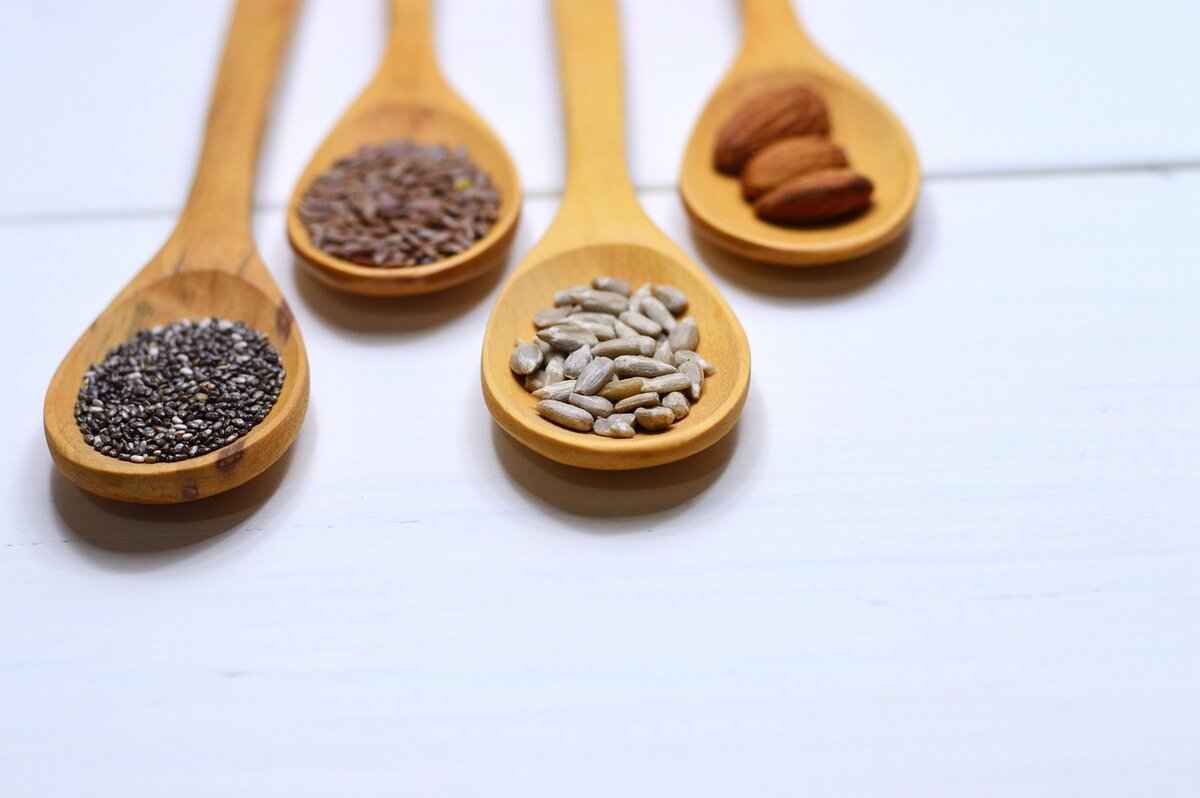
What Nutrients Are Found in Chia Seeds?
Chia seeds have gained immense popularity in recent years, not only for their versatility in the kitchen but also for their impressive nutritional profile. These tiny seeds, derived from the Salvia hispanica plant, are a powerhouse of essential nutrients that can significantly contribute to a healthy diet. Understanding what nutrients are found in chia seeds can help you appreciate their role in supporting overall health and weight loss efforts.
Chia seeds are often referred to as a superfood due to their rich nutrient content. Here’s a closer look at the key nutrients found in these tiny seeds:
- Omega-3 Fatty Acids: Chia seeds are one of the best plant-based sources of omega-3 fatty acids, particularly alpha-linolenic acid (ALA). These healthy fats are crucial for heart health, reducing inflammation, and supporting brain function.
- Dietary Fiber: With approximately 10 grams of fiber per ounce, chia seeds are an excellent source of dietary fiber. This high fiber content aids in digestion, promotes a feeling of fullness, and helps regulate blood sugar levels, making them a great addition to a weight loss diet.
- Protein: Chia seeds contain about 4 grams of protein per ounce. They are a complete protein source, meaning they provide all nine essential amino acids necessary for the body. This makes them an excellent option for vegetarians and vegans looking to boost their protein intake.
- Vitamins and Minerals: Chia seeds are rich in various vitamins and minerals, including calcium, magnesium, phosphorus, and manganese. These nutrients play vital roles in bone health, energy production, and metabolic processes.
In addition to these nutrients, chia seeds are also packed with antioxidants, which help combat oxidative stress and inflammation in the body. This makes them not only a nutritious food choice but also a protective one.
The combination of omega-3 fatty acids, fiber, and protein in chia seeds makes them particularly beneficial for those looking to manage their weight. The fiber in chia seeds expands in the stomach when mixed with liquid, creating a gel-like substance that promotes a feeling of fullness. This can help reduce overall calorie intake and curb unhealthy snacking.
Moreover, the healthy fats in chia seeds can aid in reducing inflammation, which is often linked to various chronic diseases. By incorporating chia seeds into your diet, you can support your heart health and promote overall well-being.
Incorporating chia seeds into your daily meals is simple and versatile. Here are some practical ways to enjoy their benefits:
- Add to Smoothies: Blend chia seeds into your favorite smoothies for an extra boost of nutrients.
- Make Chia Seed Pudding: Combine chia seeds with milk or a dairy alternative, let them soak overnight, and enjoy a delicious pudding.
- Sprinkle on Salads: Add chia seeds to salads for a crunchy texture and nutritional enhancement.
- Use in Baking: Substitute chia seeds for eggs in baking recipes by mixing them with water to create a gel.
By incorporating chia seeds into your meals, you can easily enhance your nutrient intake while enjoying their numerous health benefits.
While chia seeds are generally safe for most individuals, it’s essential to consume them in moderation. Due to their high fiber content, excessive intake may lead to digestive discomfort. It’s recommended to start with a small serving and gradually increase as your body adjusts.
In summary, chia seeds are a nutrient-dense superfood that can significantly contribute to your overall health and weight management goals. Their rich content of omega-3 fatty acids, fiber, protein, and essential vitamins and minerals makes them an excellent addition to any diet.
High Fiber Content
When it comes to maintaining a healthy diet, chia seeds stand out as a remarkable superfood, particularly due to their . These tiny seeds not only enhance your meals but also play a significant role in weight management and overall health. In this section, we will delve deeper into how the fiber in chia seeds can benefit your digestive system, regulate blood sugar levels, and assist in controlling appetite.
The in chia seeds is primarily composed of soluble fiber, which is known for its ability to absorb water and form a gel-like substance in the digestive tract. This property helps to:
- Promote Regular Bowel Movements: The gel formed by soluble fiber adds bulk to the stool, making it easier to pass and reducing the risk of constipation.
- Support Gut Health: Fiber acts as a prebiotic, feeding the beneficial bacteria in your gut, which is essential for a healthy digestive system.
- Enhance Nutrient Absorption: A well-functioning digestive system allows for better absorption of nutrients from the food you consume.
Another significant benefit of chia seeds is their ability to help regulate blood sugar levels. The soluble fiber in chia seeds slows down the digestion and absorption of carbohydrates, leading to:
- Stable Blood Sugar Levels: This gradual release of glucose into the bloodstream helps prevent spikes and crashes in blood sugar, which can lead to cravings and overeating.
- Reduced Risk of Type 2 Diabetes: By maintaining stable blood sugar levels, chia seeds can help lower the risk of developing insulin resistance and type 2 diabetes.
Chia seeds are known for their ability to keep you feeling full longer. When consumed, these seeds can absorb up to 12 times their weight in water, which contributes to a feeling of fullness in several ways:
- Volume Expansion: As chia seeds swell in your stomach, they create a sense of fullness, which can help you manage your hunger and reduce the urge to snack between meals.
- Decreased Caloric Intake: By helping you feel satisfied, chia seeds can lead to a natural reduction in overall calorie intake, making it easier to maintain or lose weight.
To reap the benefits of chia seeds, consider incorporating them into your daily meals. Here are some practical ideas:
- Breakfast Boost: Add chia seeds to your morning oatmeal or yogurt for an extra fiber kick.
- Smoothie Enhancer: Blend chia seeds into your smoothies for added texture and nutrition.
- Baking Ingredient: Use chia seeds as an egg substitute in baking recipes by mixing them with water to create a gel.
In conclusion, the of chia seeds offers numerous health benefits, particularly for those looking to manage their weight and improve their digestive health. By understanding how these tiny seeds work, you can effectively incorporate them into your diet and enjoy their many advantages.
Healthy Fats
play a crucial role in maintaining overall health, and chia seeds are an outstanding source of these beneficial fats. Specifically, chia seeds are rich in omega-3 fatty acids, which are essential for various bodily functions. These healthy fats are known for their anti-inflammatory properties, which can significantly contribute to heart health and overall wellness.
Omega-3 fatty acids, particularly alpha-linolenic acid (ALA), found in chia seeds, are vital for reducing inflammation in the body. Inflammation is often linked to various chronic diseases, including heart disease and obesity. By incorporating chia seeds into your diet, you can help mitigate these risks and promote better cardiovascular health.
Moreover, the presence of omega-3 fatty acids in chia seeds supports healthy weight loss by enhancing metabolic function. Studies suggest that these fatty acids can improve insulin sensitivity, which is critical for maintaining balanced blood sugar levels. When blood sugar levels are stable, it can help reduce cravings and prevent overeating, making it easier to manage weight effectively.
In addition to their weight loss benefits, omega-3 fatty acids play a significant role in brain health. They are essential for cognitive function and can help improve mood and mental clarity. This can be particularly beneficial for individuals on a weight loss journey, as maintaining a positive mindset is crucial for long-term success.
To maximize the benefits of chia seeds, it’s essential to incorporate them into your daily meals. Here are some practical ideas:
- Chia Seed Smoothies: Blend chia seeds into your favorite smoothie for an added nutrient boost.
- Overnight Oats: Mix chia seeds with oats, milk, and fruits for a delicious and filling breakfast.
- Salad Toppings: Sprinkle chia seeds on salads to enhance texture and nutritional value.
It’s important to remember that while chia seeds are a fantastic source of healthy fats, moderation is key. The recommended serving size is about 1-2 tablespoons per day. This ensures you receive the benefits without overwhelming your digestive system, as chia seeds are also high in fiber.
In conclusion, incorporating chia seeds into your diet is a simple and effective way to increase your intake of healthy fats. By doing so, you can support heart health, promote weight loss, and enhance overall well-being. With their versatility and numerous health benefits, chia seeds are a valuable addition to any diet.

How to Incorporate Chia Seeds into Your Diet?
Incorporating chia seeds into your daily diet is not only simple but also incredibly versatile. These tiny seeds can be seamlessly integrated into various meals and snacks, making them an excellent addition to your nutritional regimen.
Chia seeds can be added to a wide range of foods, enhancing their nutritional profile while providing a satisfying texture. Here are some practical ways to include chia seeds in your meals:
- Smoothies: Adding chia seeds to your morning smoothie is an easy way to boost its health benefits. Combine them with your favorite fruits, vegetables, and a liquid base like almond milk or yogurt. The seeds not only add fiber but also provide a thick, creamy consistency.
- Oatmeal: Sprinkle chia seeds on top of your oatmeal or mix them in while cooking. They will absorb some of the liquid, expanding and creating a delightful texture. This addition makes your breakfast more filling and nutritious.
- Yogurt: Enhance your yogurt by mixing in chia seeds. This combination adds a crunchy texture and increases the protein and fiber content, making it a perfect snack or breakfast option.
- Baking: Chia seeds can also be used as an egg substitute in baking. To replace one egg, mix 1 tablespoon of chia seeds with 2.5 tablespoons of water, let it sit for about 10-15 minutes until it forms a gel-like consistency, and use it in your recipes.
- Chia Seed Pudding: A popular choice for breakfast or dessert, chia seed pudding is easy to prepare. Combine 1/4 cup of chia seeds with 1 cup of milk (or a dairy alternative) and a sweetener of your choice. Let it sit in the refrigerator overnight. In the morning, enjoy it topped with fruits, nuts, or granola.
- Salads: Sprinkle chia seeds over your salads for an extra crunch. They not only enhance the texture but also contribute essential nutrients without altering the flavor.
- Soups and Stews: Add chia seeds to soups or stews as a thickening agent. They will absorb liquid and help create a heartier dish.
Overall, the versatility of chia seeds allows for creative culinary applications. Whether you prefer them in sweet or savory dishes, these seeds can easily be adapted to suit your taste.
When incorporating chia seeds into your diet, it’s important to remember that they absorb a significant amount of water. Therefore, staying hydrated is crucial. Aim to drink plenty of fluids throughout the day to avoid any digestive discomfort.
In conclusion, chia seeds are a nutrient-dense food that can be easily added to your daily meals. Their health benefits, including increased fiber intake and added protein, make them a fantastic choice for anyone looking to improve their diet. Experiment with different recipes and find the methods that work best for you!
Chia Seed Pudding
is not only a delicious treat but also a nutrient-dense option that can seamlessly fit into your breakfast or snack routine. This versatile dish is made by combining chia seeds with your choice of milk or a dairy alternative, allowing the seeds to absorb liquid and expand overnight. The result? A creamy, satisfying pudding that can be customized to suit your taste preferences.
Chia seeds are known for their health benefits, making chia seed pudding a smart choice for those looking to improve their diet. Rich in fiber, omega-3 fatty acids, and protein, this pudding not only satisfies hunger but also provides essential nutrients that support overall health.
Making chia seed pudding is incredibly simple. Here’s a quick recipe:
- Ingredients:
- 1/4 cup chia seeds
- 1 cup milk (dairy or non-dairy)
- 1-2 tablespoons sweetener (honey, maple syrup, or agave)
- 1/2 teaspoon vanilla extract (optional)
- Fruits, nuts, or spices for topping
- Instructions:
- In a bowl, mix chia seeds with milk and stir well.
- Add sweetener and vanilla extract, if desired, and mix again.
- Cover and refrigerate for at least 4 hours, or overnight.
- Before serving, stir the pudding and top with your favorite fruits or nuts.
Chia seed pudding offers multiple benefits:
- Weight Management: The high fiber content promotes feelings of fullness, helping to control appetite and reduce snacking.
- Heart Health: Omega-3 fatty acids in chia seeds support cardiovascular health, making this pudding a heart-friendly option.
- Digestive Health: Chia seeds are a great source of fiber, aiding in digestion and promoting gut health.
- Versatility: The pudding can be customized with various toppings and flavors, allowing for endless combinations.
The beauty of chia seed pudding lies in its customizability. Here are some ideas to make it uniquely yours:
- Fruits: Add fresh fruits like bananas, berries, or mangoes for natural sweetness and added nutrients.
- Nuts and Seeds: Top with almonds, walnuts, or sunflower seeds for a crunchy texture and healthy fats.
- Spices: Enhance flavor with cinnamon, nutmeg, or cocoa powder for a delightful twist.
- Layering: Create parfaits by layering chia pudding with yogurt or granola for a visually appealing presentation.
Absolutely! Chia seed pudding is perfect for meal prepping. You can prepare several servings at once, store them in jars, and grab them on the go. This makes it a convenient option for busy mornings or healthy snacks throughout the week.
In summary, chia seed pudding is a nutritious and versatile addition to your diet. By experimenting with different flavors and toppings, you can create a dish that suits your taste while reaping the health benefits of chia seeds.
Chia Seeds in Smoothies
are becoming increasingly popular among health enthusiasts and fitness aficionados. These tiny seeds pack a powerful punch when it comes to nutrition, making them an ideal addition to your daily smoothie routine.
When you add chia seeds to your smoothies, you’re not just enhancing the flavor; you’re also boosting their nutritional value. Chia seeds are rich in omega-3 fatty acids, fiber, protein, and essential minerals. These nutrients work together to create a satisfying and nutrient-dense meal that keeps you energized throughout the day.
- Boosts Nutritional Value: Chia seeds are an excellent source of dietary fiber, which can help you feel fuller for longer. This is particularly beneficial for those looking to manage their weight.
- Improves Texture: When blended, chia seeds create a creamy texture that enhances the overall mouthfeel of your smoothie. This can make your drink more enjoyable and satisfying.
- Easy to Incorporate: Chia seeds can be easily added to any smoothie recipe. Simply blend them with your favorite fruits and vegetables for a delicious and healthy treat.
To maximize the benefits of chia seeds in your smoothies, consider the following tips:
1. Soak the seeds: Soaking chia seeds in water or your smoothie liquid for about 10-15 minutes before blending can help them expand and create a gel-like consistency, which can enhance the smoothie’s texture.2. Pair with fruits: Combine chia seeds with fruits like bananas, berries, or mangoes for a naturally sweet and nutritious blend.3. Add greens: Incorporate leafy greens such as spinach or kale for an extra nutrient boost.4. Use a liquid base: Whether it’s almond milk, coconut water, or yogurt, choosing a flavorful liquid base can enhance the overall taste of your smoothie.
Additionally, chia seeds are versatile and can be combined with a variety of ingredients. Here are some popular smoothie combinations:
- Berry Chia Smoothie: Blend together mixed berries, banana, almond milk, and a tablespoon of chia seeds for a refreshing drink.
- Green Chia Smoothie: Mix spinach, avocado, apple, and chia seeds with coconut water for a nutrient-packed green smoothie.
- Chocolate Chia Smoothie: Combine banana, cocoa powder, almond milk, and chia seeds for a deliciously indulgent treat.
In conclusion, incorporating chia seeds into your smoothies not only enhances their flavor and texture but also provides a wealth of health benefits. By experimenting with different ingredients and combinations, you can create a variety of delicious smoothies that support your health and wellness goals.

Are There Any Side Effects of Chia Seeds?
Chia seeds have gained immense popularity in recent years for their numerous health benefits, particularly in the realm of weight loss and nutrition. However, as with any food, it is essential to understand potential side effects associated with their consumption. This section will delve into the side effects of chia seeds, particularly focusing on digestive issues that may arise when they are consumed in excess.
Chia seeds are generally considered safe for most individuals and are a powerhouse of nutrients. However, it is important to consume them in moderation. When consumed in large quantities, chia seeds can lead to digestive discomfort. This is primarily due to their high fiber content. A typical serving of chia seeds (1-2 tablespoons) contains about 5 grams of fiber, which can be beneficial for digestion when consumed appropriately.
However, if you suddenly increase your fiber intake by consuming large amounts of chia seeds, your digestive system may struggle to adapt. This can result in symptoms such as:
- Bloating: A common complaint among those who consume excessive fiber, bloating can occur as gas builds up in the digestive tract.
- Gas: Increased fiber can lead to fermentation in the gut, producing gas as a byproduct.
- Constipation: While fiber is typically known to aid in regularity, an abrupt increase in fiber intake without adequate hydration can lead to constipation.
To mitigate these potential side effects, it is vital to gradually introduce chia seeds into your diet. Start with a smaller serving and slowly increase the amount as your body adjusts. Additionally, hydration plays a crucial role in preventing digestive issues. Chia seeds can absorb up to 12 times their weight in water, so drinking plenty of fluids is essential when incorporating them into your diet.
To enjoy the benefits of chia seeds while minimizing the risk of digestive discomfort, consider the following tips:
- Start Small: Begin with 1 teaspoon of chia seeds and gradually increase to 1-2 tablespoons as your body adjusts.
- Soak Before Consumption: Soaking chia seeds in water or another liquid before eating can help them expand and become easier to digest.
- Stay Hydrated: Drink ample water throughout the day to aid digestion and help the fiber work effectively.
- Combine with Other Foods: Mixing chia seeds into smoothies, yogurt, or oatmeal can help balance their fiber content with other nutrients and fluids.
While most people can safely enjoy chia seeds, certain individuals may need to exercise caution. Those with existing digestive disorders, such as irritable bowel syndrome (IBS) or inflammatory bowel disease (IBD), should consult with a healthcare professional before incorporating chia seeds into their diet. Additionally, individuals who are not used to a high-fiber diet may experience more pronounced digestive issues and should take a more gradual approach.
In summary, while chia seeds are a nutritious addition to your diet, it is essential to consume them mindfully to avoid potential digestive side effects. By following the recommendations outlined above, you can enjoy the benefits of chia seeds without discomfort.
Recommended Serving Size
When it comes to incorporating chia seeds into your diet, understanding the is crucial for maximizing their benefits while minimizing any potential digestive discomfort. Chia seeds are nutrient-dense, and consuming them in appropriate amounts can help you reap their health benefits without overwhelming your system.
The for chia seeds is approximately 1-2 tablespoons per day. This quantity is sufficient to provide a wealth of nutrients, including fiber, protein, and omega-3 fatty acids, without causing digestive issues that can arise from consuming too much fiber at once.
Understanding portion control is essential when adding chia seeds to your diet. While these seeds are packed with health benefits, consuming them in excess can lead to discomfort, such as bloating or gas. This is primarily due to their high fiber content, which can overwhelm the digestive system if introduced too quickly or in large amounts.
- High Fiber Content: Chia seeds contain about 11 grams of fiber per ounce, promoting a feeling of fullness and aiding digestion.
- Rich in Omega-3 Fatty Acids: These healthy fats are essential for heart health and reducing inflammation.
- Protein Source: Chia seeds are a good plant-based protein source, making them ideal for vegetarians and vegans.
- Essential Nutrients: They provide various vitamins and minerals, including calcium, magnesium, and phosphorus.
Incorporating chia seeds into your daily routine can be both easy and enjoyable. Here are some practical ways to do so:
- Add to Smoothies: Blend chia seeds into your favorite smoothies for added texture and nutrition.
- Chia Seed Pudding: Mix chia seeds with milk or a dairy alternative and let them soak overnight for a delicious breakfast.
- Sprinkle on Salads: Enhance your salads by adding a tablespoon of chia seeds for an extra nutrient boost.
- Use as an Egg Substitute: Combine chia seeds with water to create a gel-like substance that can replace eggs in baking.
Another important aspect to consider is hydration. Chia seeds can absorb up to 12 times their weight in water. Therefore, it is crucial to drink plenty of fluids when consuming chia seeds to prevent any potential digestive discomfort. Staying hydrated ensures that your body can effectively process the seeds and absorb their nutrients.
While chia seeds are generally safe for most individuals, it is essential to adhere to the recommended serving size. Overconsumption can lead to digestive issues, particularly for those who are not accustomed to a high-fiber diet. Always start with smaller amounts and gradually increase your intake to allow your body to adjust.
In summary, the recommended serving size of 1-2 tablespoons of chia seeds per day is ideal for enjoying their numerous health benefits without overwhelming your digestive system. By incorporating chia seeds into your meals creatively and mindfully, you can enhance your overall nutrition and support your weight loss journey effectively.
Hydration and Chia Seeds
When incorporating chia seeds into your diet, one crucial aspect to consider is hydration. These tiny seeds have a unique ability to absorb water—up to 12 times their weight. This characteristic not only enhances their nutritional profile but also plays a vital role in how they affect your body. Therefore, understanding the relationship between hydration and chia seeds is essential for maximizing their benefits.
Chia seeds can swell and form a gel-like substance when mixed with liquid. This property is beneficial for creating a feeling of fullness, which can aid in weight management. However, if you consume chia seeds without adequate hydration, you may experience digestive discomfort, such as bloating or gas. To prevent this, it’s important to drink plenty of fluids throughout the day, especially when adding chia seeds to your meals.
Here are some practical tips to ensure you stay hydrated while enjoying chia seeds:
- Drink Water Before Meals: Consider drinking a glass of water before consuming chia seeds. This practice can help prepare your digestive system and enhance the seeds’ ability to expand in your stomach.
- Add to Liquid-Based Dishes: Incorporating chia seeds into smoothies, soups, or yogurt can help ensure you are consuming them with enough liquid. This not only aids in digestion but also enhances the overall texture and flavor of your meals.
- Monitor Your Intake: Start with a small amount of chia seeds, such as 1 tablespoon, and gradually increase your intake as your body adjusts. This approach allows you to gauge how your digestive system responds while ensuring you stay hydrated.
- Infuse Water with Chia Seeds: For a refreshing drink, try adding chia seeds to your water or herbal tea. Let them sit for a few minutes to absorb the liquid and create a nutritious beverage that keeps you hydrated.
Additionally, it’s essential to be mindful of your overall fluid intake. The general recommendation is to drink at least 8 glasses of water a day, but individual needs may vary based on factors such as activity level, climate, and overall diet. Including chia seeds in your hydration strategy can enhance your nutrient intake while supporting your weight loss goals.
In summary, while chia seeds offer numerous health benefits, staying adequately hydrated is key to unlocking their full potential. By drinking plenty of fluids and incorporating these seeds into your meals thoughtfully, you can enjoy their advantages without experiencing digestive discomfort. Remember, hydration is not just about drinking water; it’s about creating a balanced approach to your diet that allows for optimal health and well-being.
Frequently Asked Questions
- What are the health benefits of chia seeds?
Chia seeds are loaded with nutrients, including omega-3 fatty acids, fiber, and protein. They can help improve digestion, promote heart health, and support weight loss by keeping you feeling full longer.
- How can I add chia seeds to my diet?
Incorporating chia seeds into your meals is super easy! You can sprinkle them on yogurt, mix them into smoothies, or even make a delicious chia seed pudding by soaking them in milk or a dairy alternative overnight.
- Are there any side effects to consuming chia seeds?
While chia seeds are generally safe, eating them in large amounts may cause digestive issues like bloating or gas. It’s best to stick to the recommended serving size of 1-2 tablespoons per day.
- Do I need to drink more water when eating chia seeds?
Yes! Since chia seeds absorb a lot of water, staying hydrated is key. Drinking enough fluids will help prevent any digestive discomfort and maximize the benefits of these tiny powerhouses.

